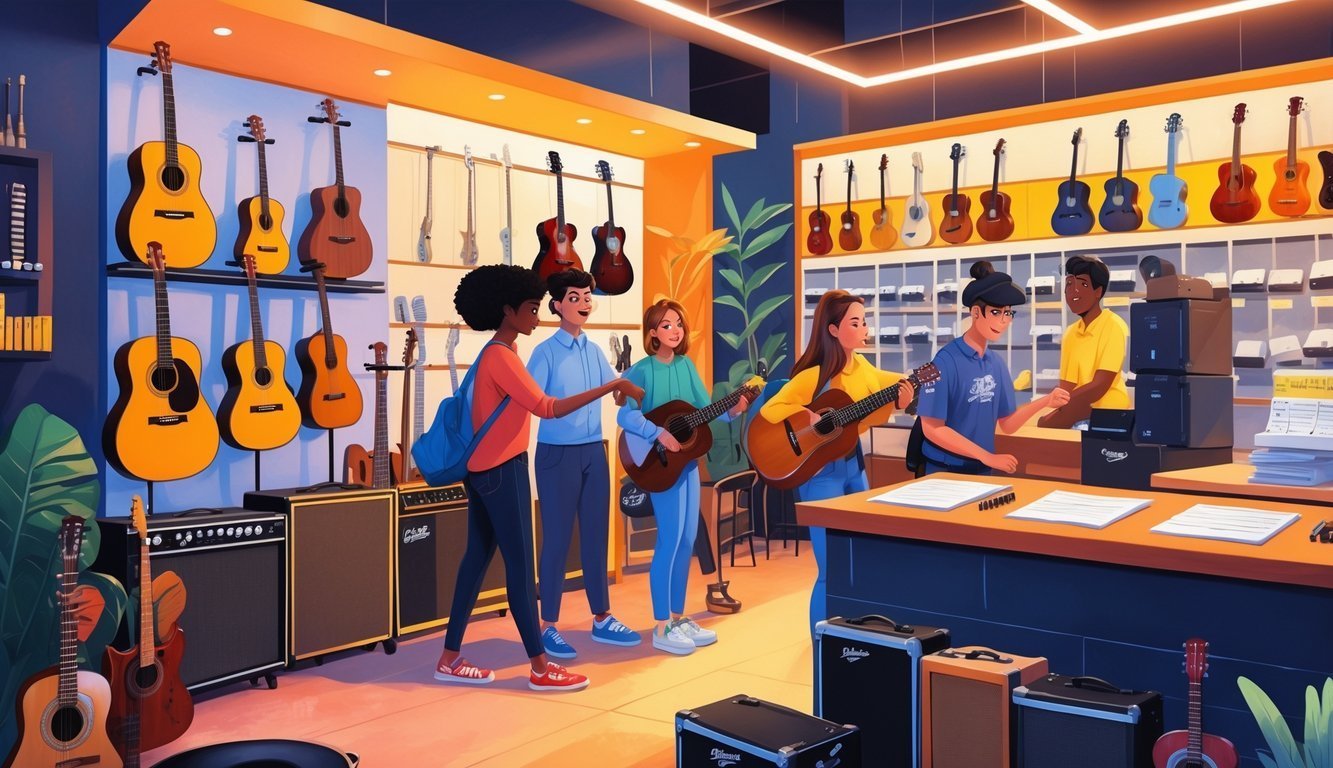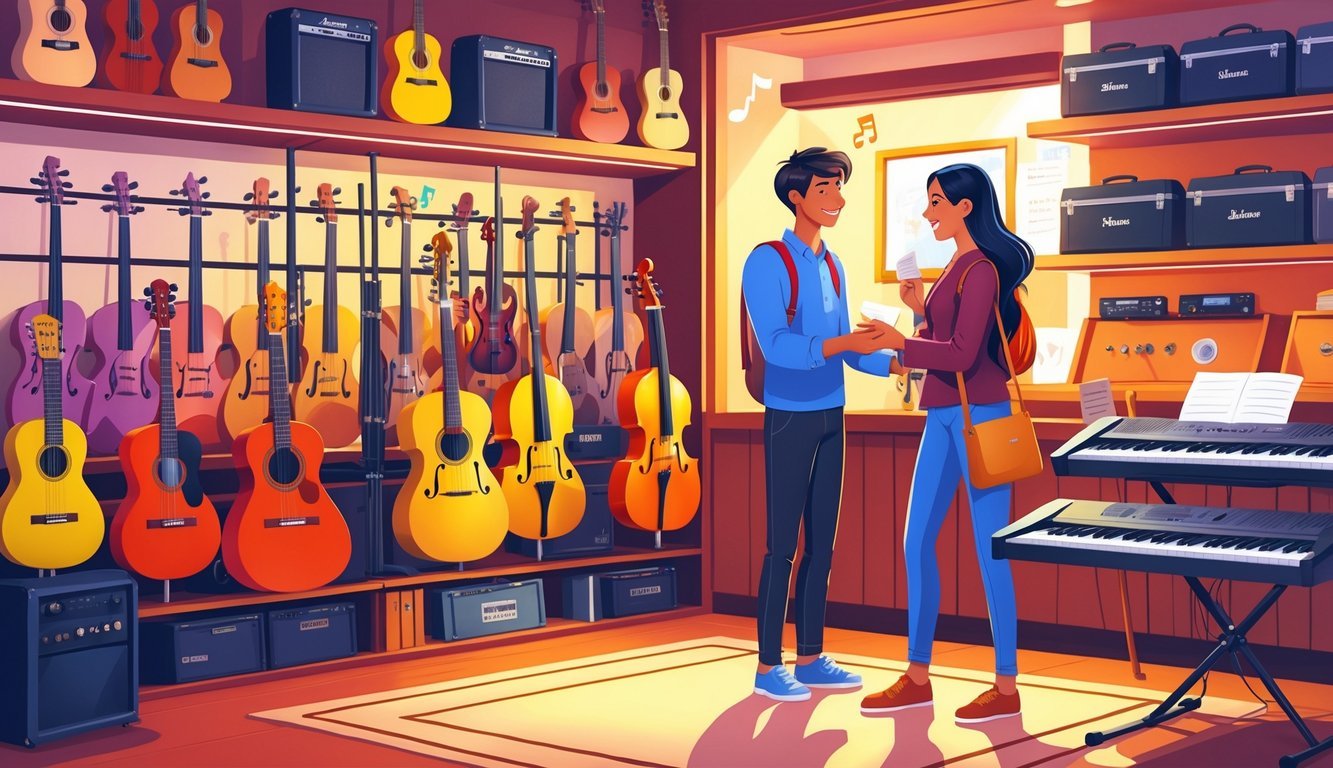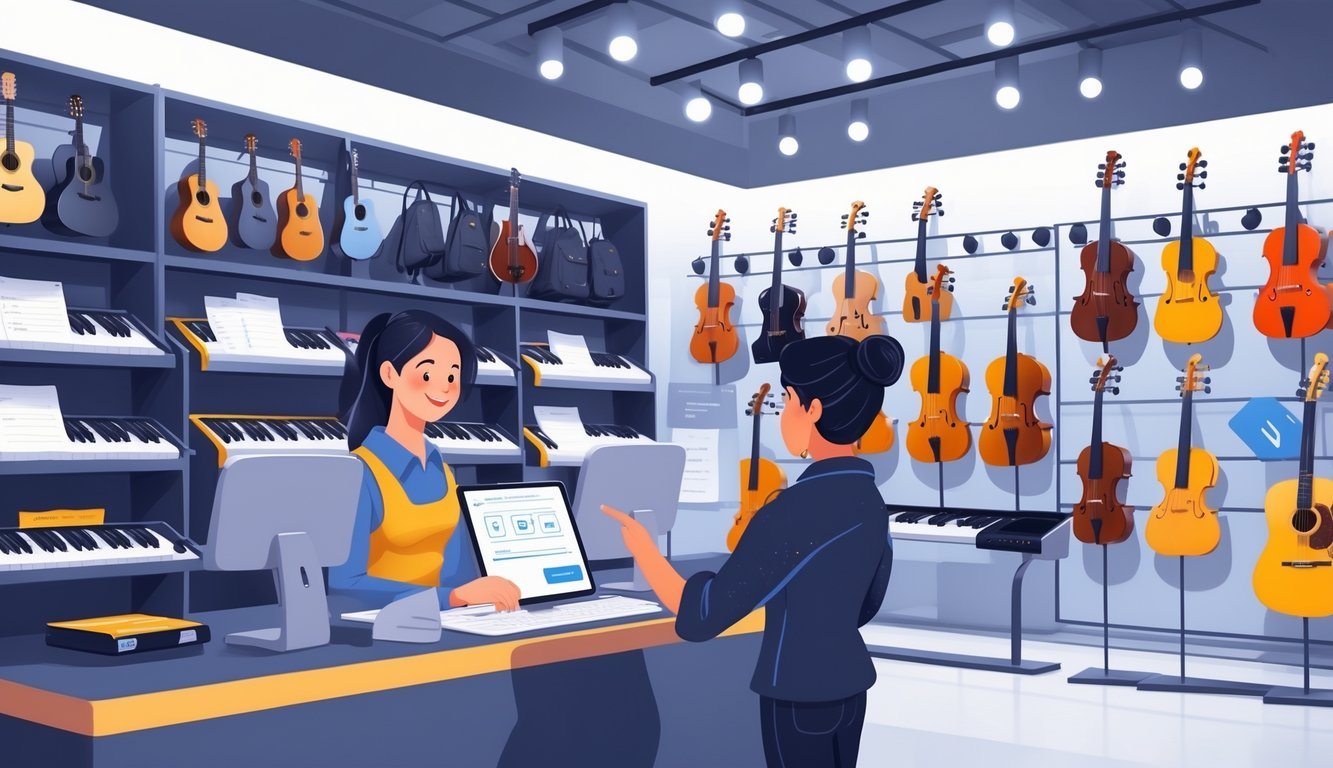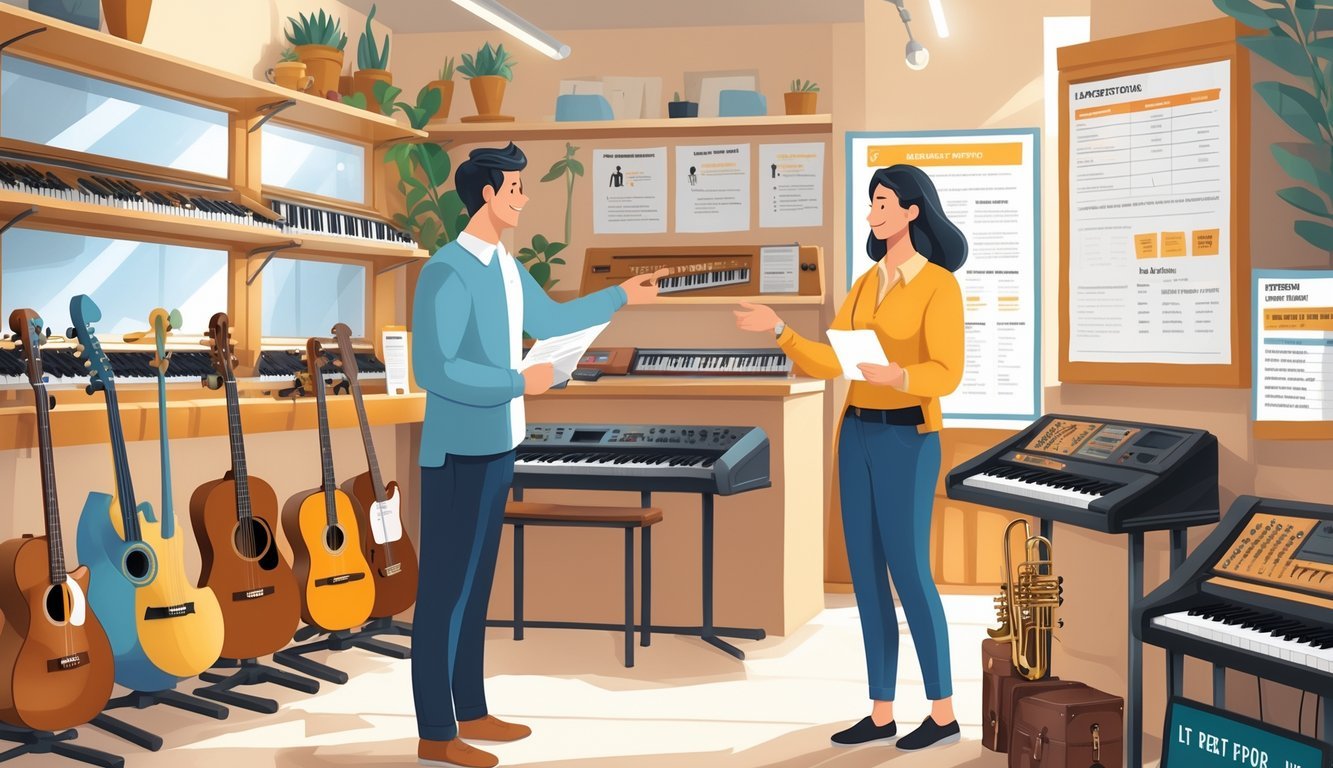PsychNewsDaily Publishers
100 Summit Drive
Burlington, MA, 01803
Telephone: (320) 349-2484
PsychNewsDaily Publishers
100 Summit Drive
Burlington, MA, 01803
Telephone: (320) 349-2484
Renting musical instruments generates extra income from unused gear while supporting learners. Clear agreements and maintenance ensure smooth transactions and customer satisfaction.

Renting out musical instruments is actually a pretty simple way to earn extra money from gear you’re not using. Got a guitar gathering dust? Maybe a trumpet you barely touch anymore? You can turn it into cash and help someone else get started with playing music—without them having to buy their own.
Just list your instruments online or ask around at local music shops. It’s honestly easier than you’d think.
If you rent out your instruments, keep them in good shape and set some clear rental terms. That protects your stuff and makes things easier for everyone.
You can also build a steady income if you offer flexible rental periods and fair prices.
Renting out your gear helps fund your own music goals, and it lets others try new sounds without spending a fortune. If you manage things well and communicate clearly, it’s a win-win.

First, figure out how musical instrument rental works and what makes your offers stand out. You’ll also want a clear rental agreement to protect yourself and your customers.
When you rent out an instrument, you lend it to someone for a set time and get paid for it. Beginners love this because they don’t have to buy expensive gear.
Renting lets students try out different instruments without a big upfront cost. You should keep your instruments in good shape and check them regularly.
People expect clean, reliable, and ready-to-play gear. If you make renting and returning simple, your service will be easier to use.
Try offering rent-to-own plans. Some customers like the option to buy after renting, so it’s worth considering.
Think about what your customers need. Price your rentals so students and beginners can afford them.
Discounts for long-term rentals or bundles (like an instrument with a case or other extras) can attract more people. Make it clear what’s included—like if you handle maintenance or repairs during the rental.
Free trials or easy exchanges can help people trust your service. Use simple language in your ads. Highlight flexibility, savings, and quality gear.
If you make things easy to understand, more people will want to rent from you.
A rental agreement sets the ground rules for you and your renters. Write down the rental period, payment terms, and any deposit you require.
Explain who’s responsible for repairs or damage. Say what happens if the instrument gets lost or stolen.
Include your return policy, like deadlines and condition checks. A written contract helps avoid confusion.
Ask for customer details and signatures so you have proof of what you agreed to. Keep a copy for yourself and give one to the renter.

Decide how you’ll set your prices, pick your instruments, and handle accessories like reeds. You also need to think about where and how you’ll promote your rentals, especially for events and education.
Check what others charge in your area so you stay competitive. A good rule of thumb is 10-15% of the instrument’s retail price per month.
Offer discounts for long-term rentals or students. Make payments easy—accept credit cards, online payments, or automatic billing.
Spell out your policies on deposits, late fees, and damage charges. That way, everyone knows what to expect.
Keep track of payments and rental periods. Staying organized protects your business and helps you manage renewals.
Pick popular instruments that are in good shape. Beginner guitars, violins, flutes, and brass instruments usually rent well.
Check each instrument’s quality and playability before renting it out. If you let poor condition gear go out, you’ll probably lose customers.
Stock a few high-end instruments for higher rents, but keep plenty of affordable options too. Watch what people rent most so you don’t end up with too much unused inventory.
Reeds and mouthpieces need special care. Since reeds wear out quickly, you might rent them separately or just sell them with the instrument.
Clean all accessories and replace worn parts often. You can offer bundles with cleaning kits or straps.
Tell customers which accessories they have to return or replace. Clear instructions help prevent loss or damage.
Reach out to schools, music teachers, and event planners. Education programs often need lots of instruments for classes and performances.
Contact local music schools and community centers. Offer deals for recitals, camps, or group lessons.
Use social media and your website to show off your easy sign-up process and any special packages for events or recording sessions. This can get you more renters.

Here’s what you can expect when renting an instrument, what it might cost, and how to start your own rental business. You’ll also find out if renting or buying is better for you, how to find rentals near you, and what’s available for school bands.
You pick the instrument you want, sign a rental agreement, and pay a monthly or yearly fee. Usually, you get a case and sometimes extras like mouthpieces or care kits.
Rental prices can start around $26 a month. The price depends on the type of instrument and how long you rent it.
Some places want a minimum rental period, usually three months.
Start with a good selection of popular instruments. Offer flexible rental periods and include extras like cases and care items.
Be clear about your prices and rental terms from the start.
Renting costs less upfront and works if you’re unsure how long you’ll play. Buying might save you money if you stick with it for years, but it costs more at first.
Think about how often you’ll actually use the instrument.
Check local music stores or look online for rental services nearby. Many stores list their prices and available instruments on their websites.
You can also ask your school or music teacher for suggestions.
A lot of rental services set up special plans just for school programs. They’ll typically provide beginner instruments, cases, and some basic accessories.
Most places ask you to rent for at least three months. That way, students actually get a fair shot at learning before returning anything.